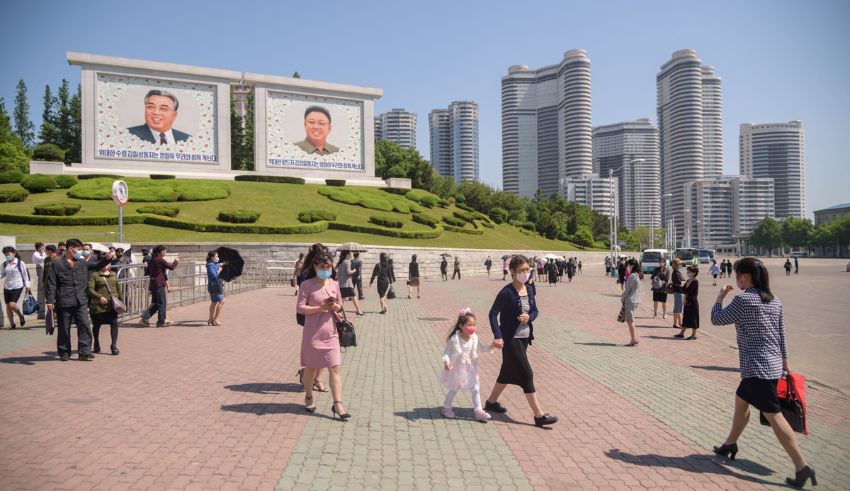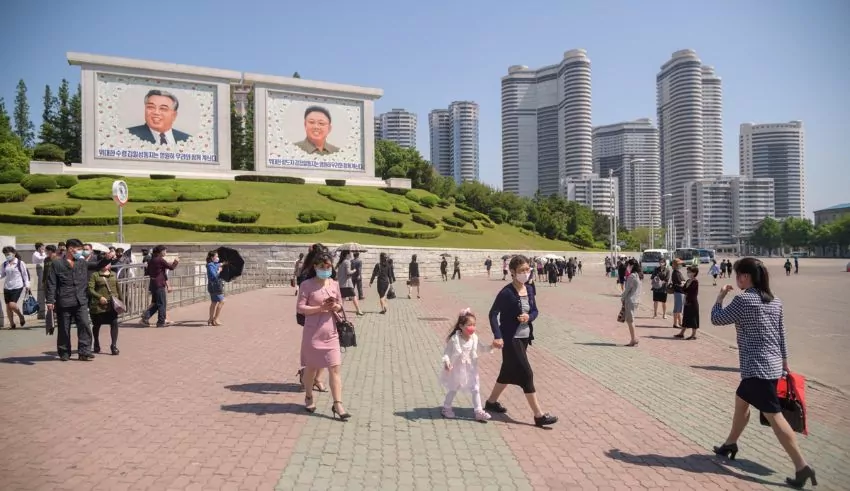

(C) Bloomberg.com
In a cryptic twist, North Korea has seemingly cracked open the door to its isolated kingdom, allowing the cautious return of foreigners after nearly four years of shuttered borders. This enigmatic move, announced without fanfare or elaboration, poses intriguing questions about the secretive nation’s intentions and vulnerabilities.
Reports from China’s state broadcaster, CCTV, confirm that North Korea will permit foreigners to enter the country starting this week. The caveat? All visitors must undergo a mandatory two-day quarantine upon arrival. In a striking contrast, North Korea’s state media remains conspicuously silent about this surprising policy shift.
This decision marks a significant deviation from the hermit kingdom’s rigid stance on foreign entry. Since early 2020, North Korea, under the leadership of Kim Jong Un, had sealed its borders tight in response to the global COVID-19 pandemic. The regime’s unyielding restrictions allowed only high-level delegations from China and Russia to enter in July, followed by the dispatch of commercial aircraft in August to repatriate stranded diplomats, students, and workers.
Historically, tourists, particularly from neighboring China, served as a vital source of foreign currency for North Korea’s economically strained regime. These visitors facilitated international transactions, circumventing the country’s isolation from the global banking system. Kim Jong Un’s abrupt border closure, however, crippled an already struggling economy. Estimates by the Bank of Korea suggest that the North Korean economy contracted, reversing growth achieved during Kim’s earlier years in power.
Recent hints of potential trade resumption with China, North Korea’s historical economic lifeline, have prompted speculation about the nation’s economic recovery. Fitch Solutions even dared to predict that North Korea’s economy might be clawing its way back to growth after two consecutive years of contraction. Yet, this optimism remains shrouded in uncertainty.
Among the paramount concerns is North Korea’s steadfast refusal to accept COVID-19 vaccine assistance from the international community. This stubborn stance heightens the risk that the nation’s antiquated healthcare system could buckle under the weight of a widescale outbreak. The reopening of borders to foreigners, while potentially resuscitating the economy, also exposes North Korea to the peril of importing the virus.
As North Korea navigates this delicate balance between economic revival and pandemic vigilance, the world watches with bated breath. The reopening of borders may signify a lifeline for the beleaguered nation, but it unfurls a cloak of intrigue and unease, leaving observers to ponder North Korea’s motivations, vulnerabilities, and the uncertain path that lies ahead.
BLACKPINK's Lisa Declines to Perform at Miss Universe 2025 BLACKPINK's Lisa, who recently stole the limelight at the 2025 Coachella…
Japan's long-standing auto manufacturer Toyota has now officially partnered with Waymo, a U.S. company in the business of self-driving technologies,…
Malaysia Airlines' service expansion to Australia involves the deployment of modern Airbus A330neo aircraft with private business class suites that…
According to state media KCNA, On Wednesday North Korea conducted its first test-firing of the recently displayed “Choe Hyon-class” warship…
Samsung Electronics released a robust set of first-quarter results today, driven by strong smartphone sales particularly with its new Galaxy…
HYCO1 and Malaysia LNG (MLNG) teamed up through a memorandum to establish a revolutionary carbon capture and utilization plant in…
This website uses cookies.
Read More